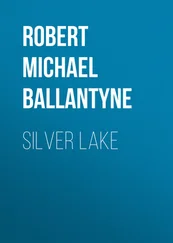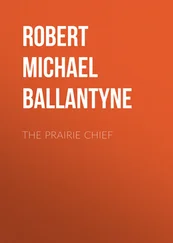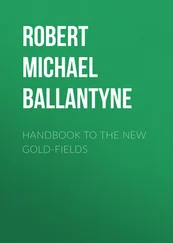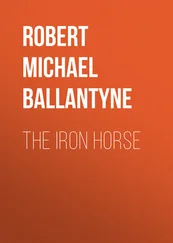Robert Michael Ballantyne - Black Ivory
Здесь есть возможность читать онлайн «Robert Michael Ballantyne - Black Ivory» — ознакомительный отрывок электронной книги совершенно бесплатно, а после прочтения отрывка купить полную версию. В некоторых случаях можно слушать аудио, скачать через торрент в формате fb2 и присутствует краткое содержание. Жанр: foreign_children, literature_19, foreign_antique, foreign_prose, на английском языке. Описание произведения, (предисловие) а так же отзывы посетителей доступны на портале библиотеки ЛибКат.
- Название:Black Ivory
- Автор:
- Жанр:
- Год:неизвестен
- ISBN:нет данных
- Рейтинг книги:5 / 5. Голосов: 1
-
Избранное:Добавить в избранное
- Отзывы:
-
Ваша оценка:
- 100
- 1
- 2
- 3
- 4
- 5
Black Ivory: краткое содержание, описание и аннотация
Предлагаем к чтению аннотацию, описание, краткое содержание или предисловие (зависит от того, что написал сам автор книги «Black Ivory»). Если вы не нашли необходимую информацию о книге — напишите в комментариях, мы постараемся отыскать её.
Black Ivory — читать онлайн ознакомительный отрывок
Ниже представлен текст книги, разбитый по страницам. Система сохранения места последней прочитанной страницы, позволяет с удобством читать онлайн бесплатно книгу «Black Ivory», без необходимости каждый раз заново искать на чём Вы остановились. Поставьте закладку, и сможете в любой момент перейти на страницу, на которой закончили чтение.
Интервал:
Закладка:
Harold and Disco sat beside each other in the stern, with an armed half-caste on each side, and Yoosoof in front. Their thoughts were busy enough at first, but neither spoke to the other. As the night advanced both fell into an uneasy slumber.
When Harold awoke, the grey dawn was beginning to break in the east and there was sufficient light to render objects dimly visible. At first he scarcely recollected where he was, but the pain caused by the ropes that bound him soon refreshed his memory. Casting his eyes quickly towards the hold, his heart sank within him at the sight he there beheld. Yoosoof’s Black Ivory was not of the best quality, but there was a good deal of it, which rendered judicious packing necessary. So many of his gang had become worthless as an article of trade, through suffering on the way down to the coast, that the boat could scarce contain them all. They were packed sitting on their haunches in rows each with his knees close to his chin, and all jammed so tightly together that none could rise up or lie down. Men, women, and little children sat in this position with an expression of indescribable hopelessness and apathy on their faces. The infants, of which there were several, lay motionless on their mothers’ shrunken breasts. God help them! they were indeed utterly worthless as pieces of merchandise. The long journey and hard treatment had worn all of them to mere skin and bone, and many were suffering from bad sores caused by the slave-irons and the unmerciful application of the lash. No one knew better than Yoosoof that this was his “damaged stock”—hopelessly damaged, and he meant to make the best use he could of it.
The sun arose in all its splendour, and revealed more clearly to the horrified Englishmen all the wretchedness of the hold, but for a considerable time they did not speak. The circumstances in which they found themselves seemed to have bereft them of the faculty of speech. The morning advanced, and Yoosoof with his men, took a frugal breakfast, but they did not offer any to Harold or Disco. As these unfortunates had, however, supped heartily, they did not mind that. So much could not have been said for the slaves. They had received their last meal of uncooked rice and water, a very insufficient one, about thirty-six hours before, and as they watched the traders at breakfast, their glaring eyes told eloquently of their sufferings.
Had these been Yoosoof’s valuable stock, his undamaged goods, he would have given them a sufficiency of food to have kept them up to condition as long as he possessed them; but being what they were, a very little drop of water and a few grains of raw rice at noon was deemed sufficient to prevent absolute starvation.
“How can you have the heart,” said Harold at last turning to Yoosoof, “to treat these poor creatures so cruelly?”
Yoosoof shrugged his shoulders.
“My fader treat them so; I follow my fader’s footsteps.”
“But have you no pity for them? Don’t you think they have hearts and feelings like ourselves?” returned Harold earnestly.
“No,” replied the Arab coldly. “They have no feelings. Hard as the stone. They care not for mother, or child, or husband. Only brutes—cattle.”
Harold was so disgusted with this reply that he relapsed into silence.
Towards the afternoon, while the dhow was running close in-shore, a vessel hove in sight on the horizon. A few minutes sufficed to show that it was a steamer. It was of course observed and closely watched by the slave-dealers as well as by Harold Seadrift and Disco Lillihammer, who became sanguinely hopeful that it might turn out to be a British man-of-war. Had they known that Yoosoof was equally anxious and hopeful on that point they would have been much surprised; but the wily Arab pretended to be greatly alarmed, and when the Union Jack became clearly visible his excitement increased. He gave some hurried orders to his men, who laughed sarcastically as they obeyed them.
“Yoosoof,” said Harold, with a slight feeling of exultation, “your plans seem about to miscarry!”
“No, they not miscarry yet,” replied the Arab, with a grim smile.
“Tell me, Yoosoof,” resumed Harold, prompted by strong curiosity, “why have you carried us off bound in this fashion?”
Another smile, more grim than the former, crossed the Arab’s visage as he replied—“Me carry you off ’cause that sheep,” pointing to the steamer, “lie not two mile off, near to town of Governor Letotti, when I first met you. We not want you to let thems know ’bout us, so I carry you off, and I bind you ’cause you strong.”
“Ha! that’s plain and reasonable,” returned Harold, scarce able to restrain a laugh at the man’s cool impudence. “But it would appear that some one else has carried the news; so, you see, you have been outwitted after all.”
“Perhaps. We shall see,” replied the Arab, with something approaching to a chuckle.
Altering the course of the boat, Yoosoof now ran her somewhat off the shore, as if with a view to get round a headland that lay to the northward. This evidently drew the attention of the steamer—which was none other than the “Firefly”—for she at once altered her course and ran in-shore, so as to intercept the dhow. Seeing this, Yoosoof turned back and made for the land at a place where there was a long line of breakers close to the shore. To run amongst these seemed to be equivalent to running on certain destruction, nevertheless the Arab held on, with compressed lips and a frowning brow. Yoosoof looked quite like a man who would rather throw away his life than gratify his enemy, and the Englishmen, who were fully alive to their danger, began to feel rather uneasy—which was a very pardonable sensation, when it is remembered that their arms being fast bound, rendered them utterly unable to help themselves in case of the boat capsizing.
The “Firefly” was by this time near enough to hold converse with the dhow through the medium of artillery. Soon a puff of white smoke burst from her bow, and a round-shot dropped a few yards astern of the boat.
“That’s a broad hint, my lad, so you’d better give in,” said Lillihammer, scarce able to suppress a look of triumph.
Yoosoof paid not the slightest attention to the remark, but held on his course.
“Surely you don’t intend to risk the lives of these poor creatures in such a surf?” said Harold anxiously; “weak and worn as they are, their doom is sealed if we capsize.”
Still the Arab paid no attention, but continued to gaze steadily at the breakers.
Harold, turning his eyes in the same direction, observed something like a narrow channel running through them. He was enough of a seaman to understand that only one who was skilled in such navigation could pass in safety.
“They’re lowering a boat,” said Disco, whose attention was engrossed by the manoeuvres of the “Firefly.”
Soon the boat left the side of the vessel, which was compelled to check her speed for fear of running on the reef. Another gun was fired as she came round, and the shot dropped right in front of the dhow, sending a column of water high into the air. Still Yoosoof held on until close to the breakers, when, to the surprise of the Englishmen, he suddenly threw the boat’s head into the wind.
“You can steer,” he said sternly to Disco. “Come, take the helm an’ go to your ship; or, if you choose, go on the breakers.”
He laughed fiercely as he said this, and next moment plunged into the sea, followed by his crew.
Disco, speechless with amazement, rose up and sprang to the helm. Of course he could not use his bound hands, but one of his legs answered almost as well. He allowed the boat to come round until the sail filled on the other tack, and then looking back, saw the heads of the Arabs as they swam through the channel and made for the shore. In a few minutes they gained it, and, after uttering a shout of defiance, ran up into the bushes and disappeared.
Читать дальшеИнтервал:
Закладка:
Похожие книги на «Black Ivory»
Представляем Вашему вниманию похожие книги на «Black Ivory» списком для выбора. Мы отобрали схожую по названию и смыслу литературу в надежде предоставить читателям больше вариантов отыскать новые, интересные, ещё непрочитанные произведения.
Обсуждение, отзывы о книге «Black Ivory» и просто собственные мнения читателей. Оставьте ваши комментарии, напишите, что Вы думаете о произведении, его смысле или главных героях. Укажите что конкретно понравилось, а что нет, и почему Вы так считаете.












